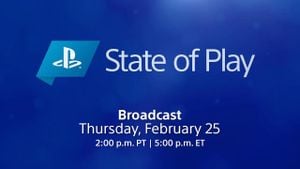The South Korean National Assembly recently held a significant committee hearing centered around the curious and increasingly controversial military orders issued during December 2025's national emergency. Major testimony from Choi Sung-hyun, commander of the Seoul Defense Command, has raised serious questions about the military's role and its commands during civil unrest, particularly concerning actions directed against parliament members.
This hearing, conducted on February 13, 2025, delves deeply beyond mere procedural politics, opening the door to discussions about potential misconduct and the legitimacy of government actions. Choi's statements have garnered attention for their detailed accounts of the orders he received, including his assertion, “I was instructed to get inside and pull out the members of the National Assembly,” highlighting potential military overreach and its unforeseen consequences on the democratic process.
The backdrop for this committee hearing is the emergency declaration made back on December 3, 2025, when martial law was imposed due to increasing civil unrest. It was during this tense time when Choi claims to have received directives intended to physically confront and remove National Assembly members—a move some are likening to political intimidation. His testimony, detailing the unexpected nature of these orders, leads to broader inquiries about the threshold of military intervention and political rights.
According to Choi, upon receiving these orders from former commander of the Defense Command, Lee Jin-woo, he expressed his confusion. “I cannot lie, nor should I,” Choi stated firmly, giving assurance to the integrity of his remarks during the testimony. This declaration is not just about his actions but reflects his realization of the moral and legal obligations tied to military interventions during political unrest.
His narrative continued, “That was what I was told, but at the time, I was understandably confused,” exploring the chaotic atmosphere prevalent at the time these orders were issued. He suggests the need for more lucidity and defined roles within military operations concerning political crises, challenging the legitimacy of military engagements against representatives of the people.
The hearing also showcased testimonies from various government officials, including those connected to President Yoon Seok-yeol. These officials provided insight and reactions concerning the claims of military overreach during the chaos, bringing forth concerns about political influence and misuse of power. Choi's statements seem to challenge the credibility of the government’s actions during the emergency, and the legal discussions now center on the criteria under which military forces can act during such crises.
This controversy has sparked public outrage, questioning the integrity and purpose of military involvement. The media response has been swift, with organizations like MBC News and YTN commenting on the seriousness of these allegations. Analysts posit, “The role of the military during civil unrest must be examined closely to prevent potential abuses of power.”
Yet, amid the mounting scrutiny, Choi maintains his composure and commitment to presenting the truth, stating, “I am merely fulfilling my role, and I will provide my testimony as it happened.” This reinforces the idea of accountability and adherence to responsibility even when actions may have surpassed acceptable limits.
The National Assembly committee is now tasked with translating these testimonies and concerns about military conduct during emergencies to legislative action. For the public, clarity remains elusive as they seek assurance against any future incidents of military overreach. The narrative surrounding the potential misuse of authority is expected to resonate until substantial changes are made.
Conclusively, the discussions elicited by the South Korean National Assembly committee hearing on military orders during December 2025 mark not only a pivotal moment for political discourse but also serve as significant legislative reflections on safeguarding democratic processes. The delicate balance between maintaining peace and respecting civil liberties has never been more pressing, and as proceedings continue, the public watches closely, calling for necessary reforms.



